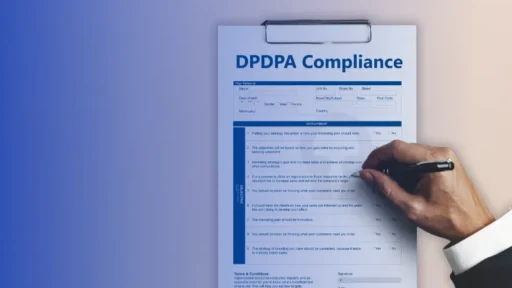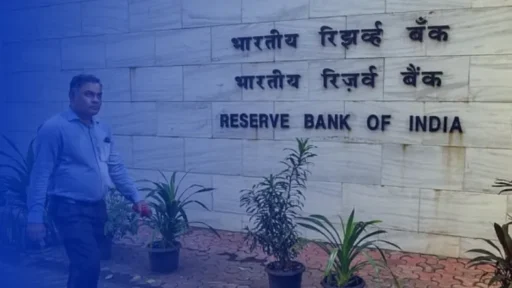In today’s world data drives innovation and fuels economic growth. And so the protection of personal information has become a crucial concern. With digital technologies and rapid data growth, governments worldwide enacted strict data protection laws. In India, the Data Protection Bill, also known as the Personal Data Protection Act (DPDPA), has emerged as a pivotal piece of law aimed at Protecting individuals’ privacy rights in the digital world. This blog explores the Impact of DPDPA on India, diving into its key provisions, mechanisms, and evolving data privacy regulation.
We look at how data privacy laws affect businesses and individual rights. Organizations are tackling the challenges of these laws in the digital era. They work to stay compliant and protect data. We explore the DPDPA’s role in India’s data privacy scene. Join us to understand its complexities and impact.
Consequences of Non-Compliance
The DPDPA brings about important consequences for companies in India. It mandates several responsibilities for companies that collect, utilize, store, or share personal information, such as:
- Securing explicit permission before the collection of personal data from people
- Establishing sufficient security protocols to safeguard personal information against unauthorized access, use, sharing, changing, or destruction
- Ensuring that individuals can access their personal data and have the ability to update, delete, or limit its use
- In case of a data leak, inform the appropriate Governing bodies.
Not following the DPDPA can lead to big penalties. These can be fines up to INR 500 crore (about $66.7 million) or 2% of worldwide yearly sales, whichever is higher. With the DPDPA’s tough rules, companies in India must do a detailed compliance check. This check will spot any gaps in following the law. It helps firms fix issues to meet the DPDPA’s standards.
To understand further we have divided the impact of DPDPA on India into two parts:
- Impact of DPDPA on Indian Companies
- Impact of DPDPA on Indian Consumers
1. Impact of DPDPA on Indian Companies
The Digital Personal Data Protection Act (DPDPA) has introduced a new era of data privacy and protection in India, significantly impacting the operational landscape for companies. This groundbreaking legislation not only sets strict guidelines for data handling but also focuses on the importance of saving personal information in the digital age. Let’s dive into the impact of DPDPA on companies within India, highlighting the challenges and opportunities it presents.
Compliance Challenges
For companies, the DPDPA introduces several compliance hurdles. Companies must ensure that their data processing practices align with the principles of legality, consent, and transparency. This requires a comprehensive audit of existing data handling processes and the implementation of robust data protection measures. The need to appoint a Data Protection Officer (DPO) to oversee data processing activities adds another layer of responsibility for organizations.
Operational Impact
Adapting to the DPDPA companies must establish clear procedures for data collection, storage, and processing, ensuring that personal data is handled securely and in compliance with the law. This may involve upgrading IT infrastructure, revising data management policies, and training employees on data protection best practices. The act also mandates companies to report data breaches within a given period.
Competitive Advantage
While compliance with the DPDPA poses challenges, it also offers opportunities for companies to differentiate themselves. Companies that actively embrace data protection standards can enhance their reputation and build trust with customers. Demonstrating a commitment to data privacy can be a competitive advantage, attracting consumers who are increasingly concerned about how their personal information is used and protected.
Global Alignment and Opportunities
The DPDPA aligns India with global data protection norms, such as the General Data Protection Regulation (GDPR) of the European Union. This Coordination opens up new avenues for international business, as companies that comply with the DPDPA can more easily meet the data protection requirements of other jurisdictions. The act Supports global data connectivity, enabling Indian companies to engage in global digital business with greater confidence and legal clarity.
Forward-looking Adaptation
Given the dynamic nature of digital technology and data usage, companies must adopt a forward-looking approach to compliance. Initially, this involves adjusting to the current requirements of the DPDPA. However, they must also anticipate future changes and update privacy norms. Consequently, companies must remain agile, regularly updating their data protection practices and policies to stay compliant and competitive.
2. Impact of DPDPA on Indian Consumers
Recently, the Digital Personal Data Protection Act (DPDPA) has emerged as a universally discussed topic in India. Consequently, its implementation signifies a major shift in the management of personal data. But, what implications does this have for the average consumer? To answer this, let’s explore the impact of DPDPA on Indian consumers, simplifying it into understandable details.
Empowerment through Consent
The Digital Personal Data Protection Act (DPDPA) significantly gives powers to consumers by introducing a crucial requirement for companies to obtain consent before gathering personal data. This pivotal change ensures that you, as a consumer, play a decisive role in the management of your personal information. No longer can organizations assume the liberty to collect, use, or share your data without your clear and informed agreement. This transformation gives power, placing it in the hands of the individual. It represents a shift in the digital landscape, where your autonomy and rights over your personal data are prioritized and are safe.
Transparency and Access
Moreover, the development of transparency under the DPDPA significantly strengthens the relationship between consumers and companies. Now, as a consumer, you are granted the right to access your personal data. This pivotal access enables you to review and understand the specific details of what information organizations possess about you. It’s not merely a procedure update; it’s a change that builds a bridge of trust between consumers and companies. By ensuring that you can easily see and verify your stored personal information, it fosters a deeper level of transparency.
Enhanced Security Measures
The Digital Personal Data Protection Act (DPDPA) significantly boosts consumer security by mandating that businesses adopt strict security practices. Importantly, this critical provision ensures that your personal data remains protected from unauthorized access or potential data violations. Consequently, you gain peace of mind, and confidence in the knowledge that your sensitive information is under robust protection. Moreover, this enhancement in security practices marks a pivotal improvement in safeguarding consumer data, thereby strengthening the walls of trust between you and the organizations handling your personal details. Ultimately, it’s a step forward in ensuring that your privacy is not just a priority but a guarantee.
Control Over Personal Data
The Digital Personal Data Protection Act (DPDPA) places a strong focus on granting consumers control over their data. This means you now have the authority to amend, delete, or limit how your personal data is used. Such Independence over personal information was virtually nonexistent before, marking a significant shift towards empowering individuals. Consequently, this ensures that your data not only reflects accuracy but is also handled in ways that align with your personal preferences and comfort levels. This enhancement in control not only elevates your command over your information but also fosters a more secure and respectful data management environment.
Final Thoughts
The Digital Personal Data Protection Act (DPDPA) marks a new era for data privacy in India. It impacts both companies and consumers. For businesses, it sets tough compliance standards. It encourages them to improve their data practices. This change offers better data protection for individuals. It gives them greater rights over their information. These rights include consent, access, and control. Achieving full compliance might be hard for companies. Yet, it leads to more trust from consumers. It also opens doors to international business opportunities. In the end, the DPDPA makes digital India safer and more respectful of privacy. It benefits the economy and the rights of citizens alike.
In the growing digital world, companies face the ongoing challenge of staying compliant with complex data privacy regulations. The introduction of laws like the DPDPA, GDPR, CCPA, and various other regional regulations has put immense pressure on organizations to manage and protect consumer data diligently. This is where Concur steps in, offering a comprehensive solution that not only simplifies compliance but also fosters trust between businesses and their customers.
Concur is designed to address the multifaceted challenges of Digital Policy Management (DPM), Data Subject Access Requests (DSARs), Data Privacy Management, Consent Management, Notice Management, Consent Operations, and DPO Compliance. Our platform is not just a tool; it’s a partner in navigating the complex world of data privacy and compliance.
Checkout: Best Consent Management Platforms in India 2024
FAQ on the Impact of DPDPA in India
The DPDPA is a law in India aimed at protecting individuals’ privacy rights by regulating the collection, processing, and storage of personal data by organizations.
It empowers individuals with the right to consent to data collection, access, and control of their personal data, ensuring transparency and enhanced security measures from companies handling their data.
Companies must secure explicit consent for data collection, establish robust security protocols, allow individuals access to their data, and report data leaks, facing fines for non-compliance.
Key responsibilities include obtaining explicit permission for data collection, ensuring data security, providing data access and changing rights to individuals, and telling authorities about data breaches.
Yes, non-compliance can lead to fines up to INR 500 crore or 2% of worldwide yearly sales, whichever is higher.
The DPDPA aligns India with global norms like the GDPR, facilitating international business and ensuring a high standard of data protection.
Firstly, following rules help avoid penalties. Moreover, it improves a company’s reputation. This also increases trust among customers. Additionally, it leads to opportunities in international business. This is because it meets global data protection standards.







Comments are closed.